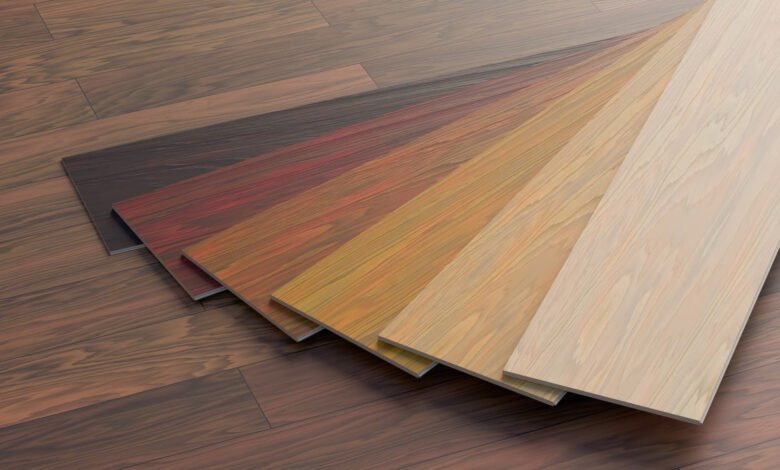Measurements That Matter: A Deep Dive into Hardwood Floor Thickness

Are you going to be installing hardwood floors in your home soon? If so, there will be a bunch of different factors that you’ll want to consider prior to purchasing them.
For instance, you’ll want to give some thought to which type of wood your hardwood floors are made out of. You’ll also want to think about which color hardwood floors will look the best in your home.
These factors will be a couple of the most important factors when investing in hardwood floors. But you also shouldn’t forget to choose the right hardwood floor thickness.
So, how thick is hardwood flooring, and how can the thickness of hardwood flooring impact your hardwood floors over time? In this article, we’ll reveal the average thickness of hardwood flooring and break down what role the thickness of hardwood flooring will have on your floors as a whole.
Discover more about hardwood floor thickness below.
How Thick Is Hardwood Flooring?
When you go to buy solid hardwood floors, you’ll be happy to hear that you won’t have to make much of a decision when it comes to hardwood floor thickness. Almost all solid hardwood floors are going to be 3/4-inch thick. That has become the standard floor thickness within the flooring industry over time.
In more recent years, there are some solid hardwood flooring manufacturers that have tinkered with hardwood floor thickness just a little. You might be able to get your hands on solid hardwood flooring that is as thin as 5/16-inch thick.
But generally speaking, most of the solid hardwood floors on the market today will come in at 3/4-inch thick. It’ll allow you to make one fewer decision when you’re selecting which solid hardwood floors you’d like to buy.
What Is the Standard Floor Thickness for Engineered Hardwood Flooring?
While 3/4-inch thick has turned into the standard as far as solid hardwood flooring goes, the same cannot be said for engineered hardwood flooring. This is where hardwood floor thickness can get to be a little confusing.
In this case, you’ll often be able to choose from either 3/8-inch thickness or 1/2-inch thickness based on your needs. Since only the top layer of engineered hardwood flooring is real wood, many flooring manufacturers have started to experiment with different hardwood floor thicknesses.
It’s worth keeping this in the back of your mind if you’re buying something like these Premium Anderson Hardwood floors. Make sure you check to see what the thickness of hardwood flooring is before you settle on the floors you would like to buy for your home.
Does Hardwood Floor Thickness Matter?
Since there aren’t really that many hardwood floor thicknesses to choose from, you may be under the impression that hardwood floor thickness doesn’t matter. But this couldn’t be further from the truth.
You should spend at least some time considering which hardwood floor thickness would be the right option for your home if you can. If you have the option to go with a hardwood floor that’s on the thicker side, it could work out well for you.
Here are several of the things that’ll be affected by hardwood floor thickness.
Stability
As long as you lay down hardwood flooring on top of a solid subfloor, it should be able to provide your hardwood floors with more than enough stability. But if the subfloor isn’t as strong as you might like, it can affect the stability of hardwood floors.
You can make hardwood floors a lot more stable by purchasing one with a beefier hardwood floor thickness. These thick floors will prove to be more stable than thinner floors would, especially if your subflooring isn’t all that strong.
Maintenance
The way in which you maintain your home’s hardwood floors might vary depending on your hardwood floor thickness. If your hardwood floors are on the thicker side, sanding them down in the future to bring them back to life might be a possibility.
But if you have very thin hardwood floors, you might not be able to sand them down at all. This will put you in a position where you’ll need to work hard to maintain your floors to avoid a situation in which you might have to replace floors that have endured their fair share of wear and tear.
Performance
Almost all hardwood floors will be designed to be very durable. They should be able to put up with almost anything that you throw at them.
But you might find that your hardwood floors won’t perform up to your standards if they’re too thin. Thicker hardwood floors will be stronger and will therefore deliver the kind of performance you’ll need from them.
Cost
At the end of the day, the reason why different hardwood floor thicknesses exist in the first place has a lot to do with the prices found on hardwood flooring. Flooring manufacturers are able to create cheaper hardwood flooring by making floors that are on the thinner side.
You don’t necessarily want to invest in hardwood floors that are very thin simply to save a few bucks. But you might be able to get more beautiful flooring than you would be able to otherwise by looking at thinner floors. It’s worth paying attention to how hardwood floor thickness can impact the prices you’ll pay for new flooring.
Choose the Right Hardwood Floor Thickness Today
The good news for those shopping for hardwood floors is that you won’t have to spend too much time considering which hardwood floor thickness to go with. There aren’t that many hardwood floor thicknesses available.
But it is a factor you should consider as you shop for hardwood floors. You might be able to get more stability and better performance from hardwood floors with some thickness to them.
Read more informative home improvement articles like this one by poking around on the rest of our blog.
Also read:






